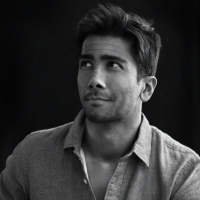
From around the end of the first quarter this year, there were a bumper crops of rather noteworthy/infamous lawsuits regarding copyright claims of imagery, and each on perhaps more fantastic than the last. Who could forget Carol Highsmith, a photographer who donated her life’s work to the Library of Congress, is suing Getty Images for “gross misuse” of her photographs and copyright infringement for the neat sum of one billion (that’s a B) dollars. While that one won’t soon be forgotten, cases like that gave voice to those that would be, and it helped bring more awareness to the need for copyright, and the rather inefficient and thus ineffective system in place within out legal system. That, and it gets more complicated since the internet knows no land borders, and international theft of imagery is rampant.
The only truly surefire way to copyright your images is to register them with the US Copyright Office, but not only is it a lengthy and expensive route if you register one photo at a time, it’s tedious, and in today’s business world that travels at the speed of thought, it’s too much. There are tools/services that help; things like ImageRights which does a fine job too, but then there’s Blockai (using the power of blockchains) which seems to be the most forward thinking of the lot, if not perfect right now.
The blockchain is the perfect solution for providing proof of creation. It’s a permanent immutable record. Meaning, once the record is there it’s there forever and will never change. – CEO of Blockai Nathen Lands
We wrote about the system in June of this year, but excitedly, since then they’ve been branching out and incorporating the mediums of today: social networks. First came Twitter integration and now the truly big fish, Instagram. It used to be the Blockai users would go to their homepage, and upload their work in a database which would take down key info about the image, a copy of it, record a timestamp, and Bob’s your uncle. If and when Blockai or you find someone using your imager improperly, you could send a copy of the certificate and issue a cease and desist or DMCA notice, helping the legal case. Now, Blockai users can simply hashtag ‘Blockai’ on the image they put into cyberspace via twitter or Instagram, a comment should appear below the image with a link to the certificate, and the company will take care of the registering and send you the certificate. They’ve simplified the process.
[REWIND: COPYRIGHT INFRINGEMENT PROBLEM PLAGUES OUR COMMUNITY | ADVICE ON HOW TO DEAL]
CAF P-51 Mustang. #instagramaviation #aviationdaily #bosea20 #whyifly #blockai
A photo posted by Jim Koepnick (@jim_koepnick) on
As we mentioned before, the true question is does this actually have strong legal footing since it’s not registering with the US Copyright Office, but the team says their certificate carries much more weight in court than a screen capture, and companies and individuals should be much more responsive to an official certificate or notice than the same said screen capture. It’s good to keep in mind too, that just because your image isn’t officially registered doesn’t mean the law isn’t on your side, and you may have time after the infringement is found to file with the US Copyright Office if you have proof it’s yours. Blockai is also free to artists so, why not?
If the company had regressed I may have suggested to skip it, but they seem to be moving forward, and should be incorporating more networks soon. That said, I still believe a serious photographer should consider officially registering their image, even though it can be expensive. But hey, do it in bulk to cut costs.
Check out Blockai here






Get Connected!